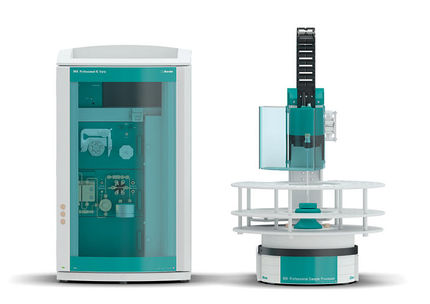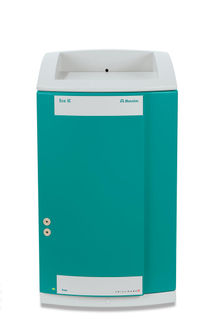To use all functions of this page, please activate cookies in your browser.
my.chemeurope.com
With an accout for my.chemeurope.com you can always see everything at a glance – and you can configure your own website and individual newsletter.
- My watch list
- My saved searches
- My saved topics
- My newsletter
Lithium economyThe lithium economy is a concept analogous to the hydrogen economy, methanol economy, ethanol economy, electron economy, vegetable oil economy, or liquid nitrogen economy but where the energy vector is lithium. Analogous "economies" are the "zinc economy" or "aluminium economy" where the energy vector (fuel) is zinc or aluminium (typically aluminium-gallium). Product highlightThe hydrogen economy as a low-carbon solution to land transport has problems in generation, distribution (infrastructure), on-board storage and cost of power converter (fuel cell). The lithium economy has analogous problems in all four areas, but considered separately, the routes to their solution have different absolute limits and different timescales for their solutions. The lithium economy concept is used primarily as a political argument to prevent over-domination of the post-carbon energy future by oil companies; and as a post-carbon economy on which action can be taken now instead of deferred to some future date (see FreedomCAR project). The lithium economy differs from the other proposed future fuel economies in that the transition roadmap begins with conventional rechargeable batteries using conventional Li-ion or Lithium polymer cell batteries and progressing to chemistries (such as Li-S and Li-iron-phosphate) and cell types with higher energy densities. Eventually, anode replacement Li-air or Li-water cells are envisaged where only anodes (Lithium metal) are replaced. The energy is stored in unoxidised lithium atoms, which release energy when oxidised. A lithium atom is six times as heavy as a hydrogen atom (so energy per mass is much worse) but is much more compact (energy per volume). In fact, storing hydrogen requires so much ancillary equipment or material that lithium is also competitive in energy per mass when the whole system is considered. See also
Categories: Fuels | Environmental chemistry |
| This article is licensed under the GNU Free Documentation License. It uses material from the Wikipedia article "Lithium_economy". A list of authors is available in Wikipedia. |







